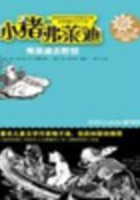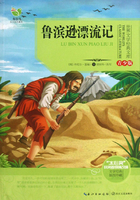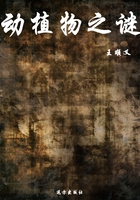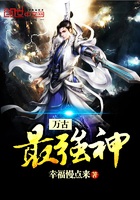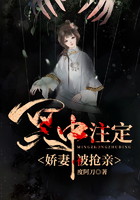The worst of sleeping out of doors is that you wake up so dreadfully early. And when you wake you have to get up because the ground is so hard that you are uncomfortable. And it makes matters worse if there is nothing but apples for breakfast and you have had nothing but apples for supper the night before. When Lucy had said-truly enough-that it was a glorious morning, there did not seem to be anything else nice to be said. Edmund said what everyone was feeling, "We've simply got to get off this island."
When they had drunk from the well and splashed their faces they all went down the stream again to the shore and stared at the channel which divided them from the mainland.
"We'll have to swim," said Edmund.
"It would be all right for Su," said Peter (Susan had won prizes for swimming at school). "But I don't know about the rest of us." By "the rest of us" he really meant Edmund who couldn't yet do two lengths at the school baths, and Lucy, who could hardly swim at all.
"Anyway," said Susan, "there may be currents. Father says it's never wise to bathe in a place you don't know."
"But, Peter," said Lucy, "look here. I know I can't swim for nuts at home-in England, I mean. But couldn't we all swim long ago-if it was long ago-when we were Kings and Queens in Narnia? We could ride then too, and do all sorts of things. Don't you think-?"
"Ah, but we were sort of grown-up then," said Peter.
"We reigned for years and years and learned to do things. Aren't we just back at our proper ages again now?"
"Oh!" said Edmund in a voice which made everyone stop talking and listen to him.
"I've just seen it all," he said.
"Seen what?" asked Peter.
"Why, the whole thing," said Edmund. "You know what we were puzzling about last night, that it was only a year ago since we left Narnia but everything looks as if no one had lived in Cair Paravel for hundreds of years? Well, don't you see? You know that, however long we seemed to have lived in Narnia, when we got back through the wardrobe it seemed to have taken no time at all?"
"Go on," said Susan. "I think I'm beginning to understand."
"And that means," continued Edmund, "that, once you're out of Narnia, you have no idea how Narnian time is going. Why shouldn't hundreds of years have gone past in Narnia while only one year has passed for us in England?"
"By Jove, Ed," said Peter. "I believe you've got it. In that sense it really was hundreds of years ago that we lived in Cair Paravel. And now we're coming back to Narnia just as if we were Crusaders or Anglo-Saxons or Ancient Britons or someone coming back to modern England?"
"How excited they'll be to see us-" began Lucy, but at the same moment everyone else said, "Hush!" or "Look!" For now something was happening.
There was a wooded point on the mainland a little to their right, and they all felt sure that just beyond that point must be the mouth of the river. And now, round that point there came into sight a boat. When it had cleared the point, it turned and began coming along the channel towards them. There were two people on board: one rowing, the other sitting in the stern and holding a bundle that twitched and moved as if it were alive. Both these people seemed to be soldiers. They had steel caps on their heads and light shirts of chain-mail. Their faces were bearded and hard. The children drew back from the beach into the wood and watched without moving a finger.
"This'll do," said the soldier in the stern when the boat had come about opposite to them.
"What about tying a stone to his feet, Corporal?" said the other, resting on his oars.
"Garn!" growled the other. "We don't need that, and we haven't brought one. He'll drown sure enough without a stone, as long as we've tied the cords right." With these words he rose and lifted his bundle. Peter now saw that it was really alive and was in fact a Dwarf, bound hand and foot but struggling as hard as he could. Next moment he heard a twang just beside his ear, and all at once the soldier threw up his arms, dropping the Dwarf into the bottom of the boat, and fell over into the water. He floundered away to the far bank and Peter knew that Susan's arrow had struck his helmet. He turned and saw that she was very pale but was already fitting a second arrow to the string. But it was never used. As soon as he saw his companion fall, the other soldier, with a loud cry, jumped out of the boat on the far side, and he also floundered through the water (which was apparently just in his depth) and disappeared into the woods of the mainland.
"Quick! Before she drifts!" shouted Peter. He and Susan, fully dressed as they were, plunged in, and before the water was up to their shoulders their hands were on the side of the boat. In a few seconds they had hauled her to the bank and lifted the Dwarf out, and Edmund was busily engaged in cutting his bonds with the pocket knife. (Peter's sword would have been sharper, but a sword is very inconvenient for this sort of work because you can't hold it anywhere lower than the hilt.) When at last the Dwarf was free, he sat up, rubbed his arms and legs, and exclaimed:
"Well, whatever they say, you don't feel like ghosts."
Like most Dwarfs he was very stocky and deep-chested. He would have been about three feet high if he had been standing up, and an immense beard and whiskers of coarse red hair left little of his face to be seen except a beak-like nose and twinkling black eyes.
"Anyway," he continued, "ghosts or not, you've saved my life and I'm extremely obliged to you."
"But why should we be ghosts?" asked Lucy.
"I've been told all my life," said the Dwarf, "that these woods along the shore were as full of ghosts as they were of trees. That's what the story is. And that's why, when they want to get rid of anyone, they usually bring him down here (like they were doing with me) and say they'll leave him to the ghosts. But I always wondered if they didn't really drown ’em or cut their throats. I never quite believed in the ghosts. But those two cowards you've just shot believed all right. They were more frightened of taking me to my death than I was of going!"
"Oh," said Susan. "So that's why they both ran away."
"Eh? What's that?" said the Dwarf.
"They got away," said Edmund. "To the mainland."
"I wasn't shooting to kill, you know," said Susan. She would not have liked anyone to think she could miss at such a short range.
"Hm," said the Dwarf. "That's not so good. That may mean trouble later on. Unless they hold their tongues for their own sake."
"What were they going to drown you for?" asked Peter.
"Oh, I'm a dangerous criminal, I am," said the Dwarf cheerfully. "But that's a long story. Meantime, I was wondering if perhaps you were going to ask me to breakfast? You've no idea what an appetite it gives one, being executed."
"There's only apples," said Lucy dolefully.
"Better than nothing, but not so good as fresh fish," said the Dwarf. "It looks as if I'll have to ask you to breakfast instead. I saw some fishing tackle in that boat. And anyway, we must take her round to the other side of the island. We don't want anyone from the mainland coming down and seeing her."
"I ought to have thought of that myself," said Peter.
The four children and the Dwarf went down to the water's edge, pushed off the boat with some difficulty, and scrambled aboard. The Dwarf at once took charge. The oars were of course too big for him to use, so Peter rowed and the Dwarf steered them north along the channel and presently eastward round the tip of the island. From here the children could see right up the river, and all the bays and headlands of the coast beyond it. They thought they could recognize bits of it, but the woods, which had grown up since their time, made everything look very different.
When they had come round into open sea on the east of the island, the Dwarf took to fishing. They had an excellent catch of pavenders, a beautiful rainbow-coloured fish which they all remembered eating in Cair Paravel in the old days. When they had caught enough they ran the boat up into a little creek and moored her to a tree. The Dwarf, who was a most capable person (and, indeed, though one meets bad Dwarfs, I never heard of a Dwarf who was a fool), cut the fish open, cleaned them, and said:
"Now, what we want next is some firewood."
"We've got some up at the castle," said Edmund.
The Dwarf gave a low whistle. "Beards and bedsteads!" he said. "So there really is a castle, after all?"
"It's only a ruin," said Lucy.
The Dwarf stared round at all four of them with a very curious expression on his face. "And who on earth-?" he began, but then broke off and said, "No matter. Breakfast first. But one thing before we go on. Can you lay your hand on your hearts and tell me I'm really alive? Are you sure I wasn't drowned and we're not all ghosts together?"
When they had all reassured him, the next question was how to carry the fish. They had nothing to string them on and no basket. They had to use Edmund's hat in the end because no one else had a hat. He would have made much more fuss about this if he had not by now been so ravenously hungry.
At first the Dwarf did not seem very comfortable in the castle. He kept looking round and sniffing and saying, "H'm. Looks a bit spooky after all. Smells like ghosts, too." But he cheered up when it came to lighting the fire and showing them how to roast the fresh pavenders in the embers. Eating hot fish with no forks, and one pocket knife between five people, is a messy business and there were several burnt fingers before the meal was ended; but, as it was now nine o'clock and they had been up since five, nobody minded the burns so much as you might have expected. When everyone had finished off with a drink from the well and an apple or so, the Dwarf produced a pipe about the size of his own arm, filled it, lit it, blew a great cloud of fragrant smoke, and said, "Now."
"You tell us your story first," said Peter. "And then we'll tell you ours."
"Well," said the Dwarf, "as you've saved my life it is only fair you should have your own way. But I hardly know where to begin. First of all I'm a messenger of King Caspian's."
"Who's he?" asked four voices all at once.
"Caspian the Tenth, King of Narnia, and long may he reign!" answered the Dwarf. "That is to say, he ought to be King of Narnia and we hope he will be. At present he is only King of us Old Narnians-"
"What do you mean by old Narnians, please?" asked Lucy.
"Why, that's us," said the Dwarf. "We're a kind of rebellion, I suppose."
"I see," said Peter." And Caspian is the chief Old Narnian."
"Well, in a manner of speaking," said the Dwarf, scratching his head. "But he's really a New Narnian himself, a Telmarine, if you follow me."
"I don't," said Edmund.
"It's worse than the Wars of the Roses," said Lucy.
"Oh dear," said the Dwarf. "I'm doing this very badly. Look here: I think I'll have to go right back to the beginning and tell you how Caspian grew up in his uncle's court and how he comes to be on our side at all. But it'll be a long story."
"All the better," said Lucy. "We love stories."
So the Dwarf settled down and told his tale. I shall not give it to you in his words, putting in all the children's questions and interruptions, because it would take too long and be confusing, and, even so, it would leave out some points that the children only heard later. But the gist of the story, as they knew it in the end, was as follows.
第四章 The Dwarf Tells Of Prince Caspian
Prince Caspian lived in a great castle in the centre of Narnia with his uncle, Miraz, the King of Narnia, and his aunt, who had red hair and was called Queen Prunaprismia. His father and mother were dead and the person whom Caspian loved best was his nurse, and though (being a prince) he had wonderful toys which would do almost anything but talk, he liked best the last hour of the day when the toys had all been put back in their cupboards and Nurse would tell him stories.
He did not care much for his uncle and aunt, but about twice a week his uncle would send for him and they would walk up and down together for half an hour on the terrace at the south side of the castle. One day, while they were doing this, the King said to him,
"Well, boy, we must soon teach you to ride and use a sword. You know that your aunt and I have no children, so it looks as if you might have to be King when I'm gone. How shall you like that, eh?"
"I don't know, Uncle," said Caspian.
"Don't know, eh?" said Miraz. "Why, I should like to know what more anyone could wish for!"
"All the same, I do wish," said Caspian.
"What do you wish?" asked the King.
"I wish-I wish-I wish I could have lived in the Old Days," said Caspian. (He was only a very little boy at the time.)
Up till now King Miraz had been talking in the tiresome way that some grown-ups have, which makes it quite clear that they are not really interested in what you are saying, but now he suddenly gave Caspian a very sharp look.
"Eh? What's that?" he said. "What old days do you mean?"
"Oh, don't you know, Uncle?" said Caspian. "When everything was quite different. When all the animals could talk, and there were nice people who lived in the streams and the trees. Naiads and Dryads they were called. And there were Dwarfs. And there were lovely little Fauns in all the woods. They had feet like goats. And-"
"That's all nonsense, for babies," said the King sternly. "Only fit for babies, do you hear? You're getting too old for that sort of stuff. At your age you ought to be thinking of battles and adventures, not fairy tales."
"Oh, but there were battles and adventures in those days," said Caspian. "Wonderful adventures. Once there was a White Witch and she made herself Queen of the whole country. And she made it so that it was always winter. And then two boys and two girls came from somewhere and so they killed the Witch and they were made Kings and Queens of Narnia, and their names were Peter and Susan and Edmund and Lucy. And so they reigned for ever so long and everyone had a lovely time, and it was all because of Aslan-"
"Who's he?" said Miraz. And if Caspian had been a very little older, the tone of his uncle's voice would have warned him that it would be wiser to shut up. But he babbled on:
"Oh, don't you know?" he said. "Aslan is the great Lion who comes from over the sea."
"Who has been telling you all this nonsense?" said the King in a voice of thunder. Caspian was frightened and said nothing.
"Your Royal Highness," said King Miraz, letting go of Caspian's hand, which he had been holding till now, "I insist upon being answered. Look me in the face. Who has been telling you this pack of lies?"
"N-Nurse," faltered Caspian, and burst into tears.
"Stop that noise," said his uncle, taking Caspian by the shoulders and giving him a shake. "Stop it. And never let me catch you talking-or thinking either-about all those silly stories again. There never were those Kings and Queens. How could there be two Kings at the same time? And there's no such person as Aslan. And there are no such things as lions. And there never was a time when animals could talk. Do you hear?"
"Yes, Uncle," sobbed Caspian.
"Then let's have no more of it," said the King. Then he called to one of the gentlemen-in-waiting who were standing at the far end of the terrace and said in a cold voice, "Conduct His Royal Highness to his apartments and send His Royal Highness's nurse to me AT ONCE."
Next day Caspian found what a terrible thing he had done, for Nurse had been sent away without even being allowed to say goodbye to him, and he was told he was to have a Tutor.
Caspian missed his nurse very much and shed many tears; and because he was so miserable, he thought about the old stories of Narnia far more than before. He dreamed of Dwarfs and Dryads every night and tried very hard to make the dogs and cats in the castle talk to him. But the dogs only wagged their tails and the cats only purred.
Caspian felt sure that he would hate the new Tutor, but when the new Tutor arrived about a week later he turned out to be the sort of person it is almost impossible not to like. He was the smallest, and also the fattest, man Caspian had ever seen. He had a long, silvery, pointed beard which came down to his waist, and his face, which was brown and covered with wrinkles, looked very wise, very ugly, and very kind. His voice was grave and his eyes were merry so that, until you got to know him really well, it was hard to know when he was joking and when he was serious. His name was Doctor Cornelius.
Of all his lessons with Doctor Cornelius the one that Caspian liked best was History. Up till now, except for Nurse's stories, he had known nothing about the History of Narnia, and he was very surprised to learn that the royal family were newcomers in the country.
"It was your Highness's ancestor, Caspian the First," said Doctor Cornelius, "who first conquered Narnia and made it his kingdom. It was he who brought all your nation into the country. You are not native Narnians at all. You are all Telmarines-that is, you all came from the Land of Telmar, far beyond the Western Mountains. That is why Caspian the First is called Caspian the Conqueror."
"Please, Doctor," asked Caspian one day, "who lived in Narnia before we all came here out of Telmar?"
"No men-or very few-lived in Narnia before the Telmarines took it," said Doctor Cornelius.
"Then who did my great-great-grandcesters conquer?"
"Whom, not who, your Highness," said Doctor Cornelius. "Perhaps it is time to turn from History to Grammar."
"Oh please, not yet!" said Caspian. "I mean, wasn't there a battle? Why is he called Caspian the Conqueror if there was nobody to fight with him?"
"I said there were very few men in Narnia," said the Doctor, looking at the little boy very strangely through his great spectacles.
For a moment Caspian was puzzled and then suddenly his heart gave a leap. "Do you mean," he gasped, "that there were other things? Do you mean it was like in the stories? Were there-?"
"Hush!" said Doctor Cornelius, laying his head very close to Caspian's. "Not a word more. Don't you know your Nurse was sent away for telling you about Old Narnia? The King doesn't like it. If he found me telling you secrets, you'd be whipped and I should have my head cut off."
"But why?" asked Caspian.
"It is high time we turned to Grammar now," said Doctor Cornelius in a loud voice. "Will your Royal Highness be pleased to open Pulverulentus Siccus at the fourth page of his Grammatical garden or the Arbour of Accidence pleasantlie open'd to Tender Wits?"
After that it was all nouns and verbs till lunchtime, but I don't think Caspian learned much. He was too excited. He felt sure that Doctor Cornelius would not have said so much unless he meant to tell him more sooner or later.
In this he was not disappointed. A few days later his Tutor said, "Tonight I am going to give you a lesson in Astronomy. At dead of night two noble planets, Tarva and Alambil, will pass within one degree of each other. Such a conjunction has not occurred for two hundred years, and your Highness will not live to see it again. It will be best if you go to bed a little earlier than usual. When the time of the conjunction draws near I will come and wake you."
This didn't seem to have anything to do with Old Narnia, which was what Caspian really wanted to hear about, but getting up in the middle of the night is always interesting and he was moderately pleased. When he went to bed that night, he thought at first that he would not be able to sleep; but he soon dropped off and it seemed only a few minutes before he felt someone gently shaking him.
He sat up in bed and saw that the room was full of moonlight. Doctor Cornelius, muffled in a hooded robe and holding a small lamp in his hand, stood by the bedside. Caspian remembered at once what they were going to do. He got up and put on some clothes. Athough it was a summer night he felt colder than he had expected and was quite glad when the Doctor wrapped him in a robe like his own and gave him a pair of warm, soft buskins for his feet. A moment later, both muffled so that they could hardly be seen in the dark corridors, and both shod so that they made almost no noise, master and pupil left the room.
Caspian followed the Doctor through many passages and up several staircases, and at last, through a little door in a turret, they came out upon the leads. On one side were the battlements, on the other a steep roof; below them, all shadowy and shimmery, the castle gardens; above them, stars and moon. Presently they came to another door which led into the great central tower of the whole castle: Doctor Cornelius unlocked it and they began to climb the dark winding stair of the tower. Caspian was becoming excited; he had never been allowed up this stair before.
It was long and steep, but when they came out on the roof of the tower and Caspian had got his breath, he felt that it had been well worth it. Away on his right he could see, rather indistinctly, the Western Mountains. On his left was the gleam of the Great River, and everything was so quiet that he could hear the sound of the waterfall at Beaversdam, a mile away. There was no difficulty in picking out the two stars they had come to see. They hung rather low in the southern sky, almost as bright as two little moons and very close together.
"Are they going to have a collision?" he asked in an awestruck voice.
"Nay, dear Prince," said the Doctor (and he too spoke in a whisper). "The great lords of the upper sky know the steps of their dance too well for that. Look well upon them. Their meeting is fortunate and means some great good for the sad realm of Narnia. Tarva, the Lord of Victory, salutes Alambil, the Lady of Peace. They are just coming to their nearest."
"It's a pity that tree gets in the way," said Caspian. "We'd really see better from the West Tower, though it is not so high."
Doctor Cornelius said nothing for about two minutes, but stood still with his eyes fixed on Tarva and Alambil. Then he drew a deep breath and turned to Caspian.
"There," he said. "You have seen what no man now alive has seen, nor will see again. And you are right. We should have seen it even better from the smaller tower. I brought you here for another reason."
Caspian looked up at him, but the Doctor's hood concealed most of his face.
"The virtue of this tower," said Doctor Cornelius, "is that we have six empty rooms beneath us, and a long stair, and the door at the bottom of the stair is locked. We cannot be overheard."
"Are you going to tell me what you wouldn't tell me the other day?" said Caspian.
"I am," said the Doctor. "But remember. You and I must never talk about these things except here-on the very top of the Great Tower."
"No. That's a promise," said Caspian. "But do go on, please."
"Listen," said the Doctor. "All you have heard about Old Narnia is true. It is not the land of Men. It is the country of Aslan, the country of the Waking Trees and Visible Naiads, of Fauns and Satyrs, of Dwarfs and Giants, of the gods and the Centaurs, of Talking Beasts. It was against these that the first Caspian fought. It is you Telmarines who silenced the beasts and the trees and the fountains, and who killed and drove away the Dwarfs and Fauns, and are now trying to cover up even the memory of them. The King does not allow them to be spoken of."
"Oh, I do wish we hadn't," said Caspian. "And I am glad it was all true, even if it is all over."
"Many of your race wish that in secret," said Doctor Cornelius.
"But, Doctor," said Caspian, "why do you say my race? After all, I suppose you're a Telmarine too."
"Am I?" said the Doctor.
"Well, you're a Man anyway," said Caspian.
"Am I?" repeated the Doctor in a deeper voice, at the same moment throwing back his hood so that Caspian could see his face clearly in the moonlight.
All at once Caspian realized the truth and felt that he ought to have realized it long before. Doctor Cornelius was so small, and so fat, and had such a very long beard. Two thoughts came into his head at the same moment. One was a thought of terror- "He's not a real man, not a man at all, he's a Dwarf, and he's brought me up here to kill me." The other was sheer delight- "There are real Dwarfs still, and I've seen one at last."
"So you've guessed it in the end," said Doctor Cornelius. "Or guessed it nearly right. I'm not a pure Dwarf. I have human blood in me too. Many Dwarfs escaped in the great battles and lived on, shaving their beards and wearing high-heeled shoes and pretending to be men. They have mixed with your Telmarines. I am one of those, only a half-Dwarf, and if any of my kindred, the true Dwarfs, are still alive anywhere in the world, doubtless they would despise me and call me a traitor. But never in all these years have we forgotten our own people and all the other happy creatures of Narnia, and the long-lost days of freedom."
"I'm-I'm sorry, Doctor," said Caspian. "It wasn't my fault, you know."
"I am not saying these things in blame of you, dear Prince," answered the Doctor. "You may well ask why I say them at all. But I have two reasons. Firstly, because my old heart has carried these secret memories so long that it aches with them and would burst if I did not whisper them to you. But secondly, for this: that when you become King you may help us, for I know that you also, Telmarine though you are, love the Old Things."
"I do, I do," said Caspian. "But how can I help?"
"You can be kind to the poor remnants of the Dwarf people, like myself. You can gather learned magicians and try to find a way of awaking the trees once more. You can search through all the nooks and wild places of the land to see if any Fauns or Talking Beasts or Dwarfs are perhaps still alive in hiding."
"Do you think there are any?" asked Caspian eagerly.
"I don't know-I don't know," said the Doctor with a deep sigh. "Sometimes I am afraid there can't be. I have been looking for traces of them all my life. Sometimes I have thought I heard a Dwarf-drum in the mountains. Sometimes at night, in the woods, I thought I had caught a glimpse of Fauns and Satyrs dancing a long way off; but when I came to the place, there was never anything there. I have often despaired; but something always happens to start me hoping again. I don't know. But at least you can try to be a King like the High King Peter of old, and not like your uncle."
"Then it's true about the Kings and Queens too, and about the White Witch?" said Caspian.
"Certainly it is true," said Cornelius. "Their reign was the Golden Age in Narnia and the land has never forgotten them."
"Did they live in this castle, Doctor?"
"Nay, my dear," said the old man. "This castle is a thing of yesterday. Your great-great-grand-father built it. But when the two sons of Adam and the two daughters of Eve were made Kings and Queens of Narnia by Aslan himself, they lived in the castle of Cair Paravel. No man alive has seen that blessed place and perhaps even the ruins of it have now vanished. But we believe it was far from here, down at the mouth of the Great River, on the very shore of the sea."
"Ugh!" said Caspian with a shudder. "Do you mean in the Black Woods? Where all the-the-you know, the ghosts live?"
"Your Highness speaks as you have been taught," said the Doctor. "But it is all lies. There are no ghosts there. That is a story invented by the Telmarines. Your Kings are in deadly fear of the sea because they can never quite forget that in all stories Aslan comes from over the sea. They don't want to go near it and they don't want anyone else to go near it. So they have let great woods grow up to cut their people off from the coast. But because they have quarrelled with the trees they are afraid of the woods. And because they are afraid of the woods they imagine that they are full of ghosts. And the Kings and great men, hating both the sea and the wood, partly believe these stories, and partly encourage them. They feel safer if no one in Narnia dares to go down to the coast and look out to sea-towards Aslan's land and the morning and the eastern end of the world."
There was a deep silence between them for a few minutes. Then Doctor Cornelius said, "Come. We have been here long enough. It is time to go down and to bed."
"Must we?" said Caspian. "I'd like to go on talking about these things for hours and hours and hours."
"Someone might begin looking for us, if we did that," said Doctor Cornelius.
第五章 Caspians Adventure In The Mountains
After this, Caspian and his Tutor had many more secret conversations on the top of the Great Tower, and at each conversation Caspian learned more about Old Narnia, so that thinking and dreaming about the old days, and longing that they might come back, filled nearly all his spare hours. But of course he had not many hours to spare, for now his education was beginning in earnest. He learned sword-fighting and riding, swimming and diving, how to shoot with the bow and play on the recorder and the theorbo, how to hunt the stag and cut him up when he was dead, besides Cosmography, Rhetoric, Heraldry, Versification, and of course History, with a little Law, Physic, Alchemy, and Astronomy. Of Magic he learned only the theory, for Doctor Cornelius said the practical part was not proper study for princes. "And I myself," he added, "am only a very imperfect magician and can do only the smallest experiments." Of Navigation ("Which is a noble and heroical art," said the Doctor) he was taught nothing, because King Miraz disapproved of ships and the sea.
He also learned a great deal by using his own eyes and ears. As a little boy he had often wondered why he disliked his aunt, Queen Prunaprismia; he now saw that it was because she disliked him. He also began to see that Narnia was an unhappy country. The taxes were high and the laws were stern and Miraz was a cruel man.
After some years there came a time when the Queen seemed to be ill and there was a great deal of bustle and pother about her in the castle and doctors came and the courtiers whispered. This was in early summertime. And one night, while all this fuss was going on, Caspian was unexpectedly wakened by Doctor Cornelius after he had been only a few hours in bed.
"Are we going to do a little Astronomy, Doctor?" said Caspian.
"Hush!" said the Doctor. "Trust me and do exactly as I tell you. Put on all your clothes; you have a long journey before you."
Caspian was very surprised, but he had learned to have confidence in his Tutor and he began doing what he was told at once. When he was dressed the Doctor said, "I have a wallet for you. We must go into the next room and fill it with victuals from your Highness's supper table."
"My gentlemen-in-waiting will be there," said Caspian.
"They are fast asleep and will not wake," said the Doctor. "I am a very minor magician but I can at least contrive a charmed sleep."
They went into the antechamber and there, sure enough, the two gentlemen-in-waiting were, sprawling on chairs and snoring hard. Doctor Cornelius quickly cut up the remains of a cold chicken and some slices of venison and put them, with bread and an apple or so and a little flask of good wine, into the wallet which he then gave to Caspian. It fitted on by a strap over Caspian's shoulder, like a satchel you would use for taking books to school.
"Have you your sword?" asked the Doctor.
"Yes," said Caspian.
"Then put this mantle over all to hide the sword and the wallet. That's right. And now we must go to the Great Tower and talk."
When they had reached the top of the Tower (it was a cloudy night, not at all like the night when they had seen the conjunction of Tarva and Alambil) Doctor Cornelius said,
"Dear Prince, you must leave this castle at once and go to seek your fortune in the wide world. Your life is in danger here."
"Why?" asked Caspian.
"Because you are the true King of Narnia: Caspian the Tenth, the true son and heir of Caspian the Ninth. Long life to your Majesty" -and suddenly, to Caspian's great surprise, the little man dropped down on one knee and kissed his hand.
"What does it all mean? I don't understand," said Caspian.
"I wonder you have never asked me before," said the Doctor, "why, being the son of King Caspian, you are not King Caspian yourself. Everyone except your Majesty knows that Miraz is a usurper. When he first began to rule he did not even pretend to be the King: he called himself Lord Protector. But then your royal mother died, the good Queen and the only Telmarine who was ever kind to me. And then, one by one, all the great lords, who had known your father, died or disappeared. Not by accident, either. Miraz weeded them out. Belisar and Uvilas were shot with arrows on a hunting party: by chance, it was pretended. All the great house of the Passarids he sent to fight giants on the northern frontier till one by one they fell. Arlian and Erimon and a dozen more he executed for treason on a false charge. The two brothers of Beaversdam he shut up as madmen. And finally he persuaded the seven noble lords, who alone among all the Telmarines did not fear the sea, to sail away and look for new lands beyond the Eastern Ocean and, as he intended, they never came back. And when there was no one left who could speak a word for you, then his flatterers (as he had instructed them) begged him to become King. And of course he did."
"Do you mean he now wants to kill me too?" said Caspian.
"That is almost certain," said Doctor Cornelius.
"But why now?" said Caspian. "I mean, why didn't he do it long ago if he wanted to? And what harm have I done him?"
"He has changed his mind about you because of something that happened only two hours ago. The Queen has had a son."
"I don't see what that's got to do with it," said Caspian.
"Don't see!" exclaimed the Doctor. "Have all my lessons in History and Politics taught you no more than that? Listen. As long as he had no children of his own, he was willing enough that you should be King after he died. He may not have cared much about you, but he would rather you should have the throne than a stranger. Now that he has a son of his own he will want his own son to be the next King. You are in the way. He'll clear you out of the way."
"Is he really as bad as that?" said Caspian. "Would he really murder me?"
"He murdered your Father," said Doctor Cornelius.
Caspian felt very queer and said nothing.
"I can tell you the whole story," said the Doctor. "But not now. There is no time. You must fly at once."
"You'll come with me?" said Caspian.
"I dare not," said the Doctor. "It would make your danger greater. Two are more easily tracked than one. Dear Prince, dear King Caspian, you must be very brave. You must go alone and at once. Try to get across the southern border to the court of King Nain of Archenland. He will be good to you."
"Shall I never see you again?" said Caspian in a quavering voice.
"I hope so, dear King," said the Doctor. "What friend have I in the wide world except your Majesty? And I have a little magic. But in the meantime, speed is everything. Here are two gifts before you go. This is a little purse of gold-alas, all the treasure in this castle should be your own by rights. And here is something far better."
He put in Caspian's hands something which he could hardly see but which he knew by the feel to be a horn.
"That," said Doctor Cornelius, "is the greatest and most sacred treasure of Narnia. Many terrors I endured, many spells did I utter, to find it, when I was still young. It is the magic horn of Queen Susan herself which she left behind her when she vanished from Narnia at the end of the Golden Age. It is said that whoever blows it shall have strange help-no one can say how strange. It may have the power to call Queen Lucy and King Edmund and Queen Susan and High King Peter back from the past, and they will set all to rights. It may be that it will call up Aslan himself. Take it, King Caspian: but do not use it except at your greatest need. And now, haste, haste, haste. The little door at the very bottom of the Tower, the door into the garden, is unlocked. There we must part."
"Can I get my horse Destrier?" said Caspian.
"He is already saddled and waiting for you just at the corner of the orchard."
During the long climb down the winding staircase Cornelius whispered many more words of direction and advice. Caspian's heart was sinking, but he tried to take it all in. Then came the fresh air in the garden, a fervent handclasp with the Doctor, a run across the lawn, a welcoming whinny from Destrier, and so King Caspian the Tenth left the castle of his fathers. Looking back, he saw fireworks going up to celebrate the birth of the new prince.
All night he rode southward, choosing by-ways and bridle paths through woods as long as he was in country that he knew; but afterwards he kept to the high road. Destrier was as excited as his master at this unusual journey, and Caspian, though tears had come into his eyes at saying goodbye to Doctor Cornelius, felt brave and, in a way, happy, to think that he was King Caspian riding to seek adventures, with his sword on his left hip and Queen Susan's magic horn on his right. But when day came, with a sprinkle of rain, and he looked about him and saw on every side unknown woods, wild heaths, and blue mountains, he thought how large and strange the world was and felt frightened and small.
As soon as it was full daylight he left the road and found an open grassy place amid a wood where he could rest. He took off Destrier's bridle and let him graze, ate some cold chicken and drank a little wine, and presently fell asleep. It was late afternoon when he awoke. He ate a morsel and continued his journey, still southward, by many unfrequented lanes. He was now in a land of hills, going up and down, but always more up than down. From every ridge he could see the mountains growing bigger and blacker ahead. As the evening closed in, he was riding their lower slopes. The wind rose. Soon rain fell in torrents. Destrier became uneasy; there was thunder in the air. And now they entered a dark and seemingly endless pine forest, and all the stories Caspian had ever heard of trees being unfriendly to Man crowded into his mind. He remembered that he was, after all, a Telmarine, one of the race who cut down trees wherever they could and were at war with all wild things; and though he himself might be unlike other Telmarines, the trees could not be expected to know this.
Nor did they. The wind became a tempest, the woods roared and creaked all round them. There came a crash. A tree fell right across the road just behind him. "Quiet, Destrier, quiet!" said Caspian, patting his horse's neck; but he was trembling himself and knew that he had escaped death by an inch. Lightning flashed and a great crack of thunder seemed to break the sky in two just overhead. Destrier bolted in good earnest. Caspian was a good rider, but he had not the strength to hold him back. He kept his seat, but he knew that his life hung by a thread during the wild career that followed. Tree after tree rose up before them in the dusk and was only just avoided. Then, almost too suddenly to hurt (and yet it did hurt him too) something struck Caspian on the forehead and he knew no more.
When he came to himself he was lying in a firelit place with bruised limbs and a bad headache. Low voices were speaking close at hand.
"And now," said one, "before it wakes up we must decide what to do with it."
"Kill it," said another. "We can't let it live. It would betray us."
"We ought to have killed it at once, or else let it alone," said a third voice. "We can't kill it now. Not after we've taken it in and bandaged its head and all. It would be murdering a guest."
"Gentlemen," said Caspian in a feeble voice, "whatever you do to me, I hope you will be kind to my poor horse."
"Your horse had taken flight long before we found you," said the first voice-a curiously husky, earthy voice, as Caspian now noticed.
"Now don't let it talk you round with its pretty words," said the second voice. "I still say-"
"Horns and halibuts!" exclaimed the third voice. "Of course we're not going to murder it. For shame, Nikabrik. What do you say, Trufflehunter? What shall we do with it?"
"I shall give it a drink," said the first voice, presumably Trufflehunter's. A dark shape approached the bed. Caspian felt an arm slipped gently under his shoulders-if it was exactly an arm. The shape somehow seemed wrong. The face that bent towards him seemed wrong too. He got the impression that it was very hairy and very long nosed, and there were odd white patches on each side of it. "It's a mask of some sort," thought Caspian. "Or perhaps I'm in a fever and imagining it all." A cupful of something sweet and hot was set to his lips and he drank. At that moment one of the others poked the fire. A blaze sprang up and Caspian almost screamed with the shock as the sudden light revealed the face that was looking into his own. It was not a man's face but a badger's, though larger and friendlier and more intelligent than the face of any badger he had seen before. And it had certainly been talking. He saw, too, that he was on a bed of heather, in a cave. By the fire sat two little bearded men, so much wilder and shorter and hairier and thicker than Doctor Cornelius that he knew them at once for real Dwarfs, ancient Dwarfs with not a drop of human blood in their veins. And Caspian knew that he had found the Old Narnians at last. Then his head began to swim again.
In the next few days he learned to know them by names. The Badger was called Trufflehunter; he was the oldest and kindest of the three. The Dwarf who had wanted to kill Caspian was a sour Black Dwarf (that is, his hair and beard were black, and thick and hard like horsehair). His name was Nikabrik. The other Dwarf was a Red Dwarf with hair rather like a Fox's and he was called Trumpkin.
"And now," said Nikabrik on the first evening when Caspian was well enough to sit up and talk, "we still have to decide what to do with this Human. You two think you've done it a great kindess by not letting me kill it. But I suppose the upshot is that we have to keep it a prisoner for life. I'm certainly not going to let it go alive-to go back to its own kind and betray us all."
"Bulbs and bolsters. Nikabrik!" said Trumpkin. "Why need you talk so unhandsomely? It isn't the creature's fault that it bashed its head against a tree outside our hole. And I don't think it looks like a traitor."
"I say," said Caspian, "you haven't yet found out whether I want to go back. I don't. I want to stay with you-if you'll let me. I've been looking for people like you all my life."
"That's a likely story," growled Nikabrik. "You're a Telmarine and a Human, aren't you? Of course you want to go back to your own kind."
"Well, even if I did, I couldn't," said Caspian. "I was flying for my life when I had my accident. The King wants to kill me. If you'd killed me, you'd have done the very thing to please him."
"Well now," said Trufflehunter, "you don't say so!"
"Eh?" said Trumpkin. "What's that? What have you been doing, Human, to fall foul of Miraz at your age?"
"He's my uncle," began Caspian, when Nikabrik jumped up with his hand on his dagger.
"There you are!" he cried. "Not only a Telmarine but close kin and heir to our greatest enemy. Are you still mad enough to let this creature live?" He would have stabbed Caspian then and there, if the Badger and Trumpkin had not got in the way and forced him back to his seat and held him down.
"Now, once and for all, Nikabrik," said Trumpkin. "Will you contain yourself, or must Trufflehunter and I sit on your head?"
Nikabrik sulkily promised to behave, and the other two asked Caspian to tell his whole story. When he had done so there was a moment's silence.
"This is the queerest thing I ever heard," said Trumpkin.
"I don't like it," said Nikabrik. "I didn't know there were stories about us still told among the Humans. The less they know about us the better. That old nurse, now. She'd better have held her tongue. And it's all mixed up with that Tutor: a renegade Dwarf. I hate'em. I hate'em worse than the Humans. You mark my words-no good will come of it.
"Don't you go talking about things you don't understand, Nikabrik," said Trufflehunter. "You Dwarfs are as forgetful and changeable as the Humans themselves. I'm a beast, I am, and a Badger what's more. We don't change. We hold on. I say great good will come of it. This is the true King of Narnia we've got here: a true King, coming back to true Narnia. And we beasts remember, even if Dwarfs forget, that Narnia was never right except when a son of Adam was King."
"Whistles and whirligigs, Trufflehunter!" said Trumpkin. "You don't mean you want to give the country to Humans?"
"I said nothing about that," answered the Badger. "It's not Men's country (who should know that better than me?) but it's a country for a man to be King of. We badgers have long enough memories to know that. Why, bless us all, wasn't the High King Peter a Man?"
"Do you believe all those old stories?" asked Trumpkin.
"I tell you, we don't change, we beasts," said Trufflehunter. "We don't forget. I believe in the High King Peter and the rest that reigned at Cair Paravel, as firmly as I believe in Aslan himself."
"As firmly as that, I dare say," said Trumpkin. "But who believes in Aslan nowadays?"
"I do," said Caspian. "And if I hadn't believed in him before, I would now. Back there among the Humans the people who laughed at Aslan would have laughed at stories about Talking Beasts and Dwarfs. Sometimes I did wonder if there really was such a person as Aslan; but then sometimes I wondered if there were really people like you. Yet there you are."
"That's right," said Trufflehunter. "You're right, King Caspian. And as long as you will be true to Old Narnia you shall be my King, whatever they say. Long life to your Majesty."
"You make me sick, Badger," growled Nikabrik. "The High King Peter and the rest may have been Men, but they were a different sort of men. This is one of the cursed Telmarines. He has hunted beasts for sport. Haven't you, now?" he added, rounding suddenly on Caspian.
"Well, to tell you the truth, I have," said Caspian. "But they weren't Talking Beasts."
"It's all the same thing," said Nikabrik.
"No, no, no," said Trufflehunter. "You know it isn't. You know very well that the beasts in Narnia nowadays are different and are no more than the poor dumb, witless creatures you'd find in Calormen or Telmar. They're smaller too. They're far more different from us than the half-Dwarfs are from you."
There was a great deal more talk, but it all ended with the agreement that Caspian should stay and even the promise that, as soon as he was able to go out, he should be taken to see what Trumpkin called "the Others"; for apparently in these wild parts all sorts of creatures from the Old Days of Narnia still lived on in hiding.
第六章 The People That Lived In Hiding
Now began the happiest times that Caspian had ever known. On a fine summer morning when the dew lay on the grass he set off with the Badger and the two Dwarfs, up through the forest to a high saddle in the mountains and down on to their sunny southern slopes where one looked across the green wolds of Archenland.
"We will go first to the Three Bulgy Bears," said Trumpkin.
They came in a glade to an old hollow oak tree covered with moss, and Trufflehunter tapped with his paw three times on the trunk and there was no answer. Then he tapped again and a woolly sort of voice from inside said, "Go away. It's not time to get up yet." But when he tapped the third time there was a noise like a small earthquake from inside and a sort of door opened and out came three brown bears, very bulgy indeed and blinking their little eyes. And when everything had been explained to them (which took a long time because they were so sleepy) they said, just as Trufflehunter had said, that a son of Adam ought to be King of Narnia and all kissed Caspian-very wet, snuffly kisses they were-and offered him some honey. Caspian did not really want honey, without bread, at that time in the morning, but he thought it polite to accept. It took him a long time afterwards to get unsticky.
After that they went on till they came among tall beech trees and Trufflehunter called out, "Pattertwig! Pattertwig! Pattertwig!" and almost at once, bounding down from branch to branch till he was just above their heads, came the most magnificent red squirrel that Caspian had ever seen. He was far bigger than the ordinary dumb squirrels which he had sometimes seen in the castle gardens; indeed he was nearly the size of a terrier and the moment you looked in his face you saw that he could talk. Indeed the difficulty was to get him to stop talking, for, like all squirrels, he was a chatterer. He welcomed Caspian at once and asked if he would like a nut and Caspian said thanks, he would. But as Pattertwig went bounding away to fetch it, Trufflehunter whispered in Caspian's ear, "Don't look. Look the other way. It's very bad manners among squirrels to watch anyone going to his store or to look as if you wanted to know where it was." Then Pattertwig came back with the nut and Caspian ate it and after that Pattertwig asked if he could take any messages to other friends. "For I can go nearly everywhere without setting foot to ground," he said. Trufflehunter and the Dwarfs thought this a very good idea and gave Pattertwig messages to all sorts of people with queer names telling them all to come to a feast and council on Dancing Lawn at midnight three nights ahead. "And you'd better tell the three Bulgies too," added Trumpkin. "We forgot to mention it to them."
Their next visit was to the Seven Brothers of Shuddering Wood. Trumpkin led the way back to the saddle and then down eastward on the northern slope of the mountains till they came to a very solemn place among rocks and fir trees. They went very quietly and presently Caspian could feel the ground shake under his feet as if someone were hammering down below. Trumpkin went to a flat stone about the size of the top of a water-butt, and stamped on it with his foot. After a long pause it was moved away by someone or something underneath, and there was a dark, round hole with a good deal of heat and steam coming out of it and in the middle of the hole the head of a Dwarf very like Trumpkin himself. There was a long talk here and the dwarf seemed more suspicious than the Squirrel or the Bulgy Bears had been, but in the end the whole party was invited to come down. Caspian found himself descending a dark stairway into the earth, but when he came to the bottom he saw firelight. It was the light of a furnace. The whole place was a smithy. A subterranean stream ran past on one side of it. Two Dwarfs were at the bellows, another was holding a piece of red-hot metal on the anvil with a pair of tongs, a fourth was hammering it, and two, wiping their horny little hands on a greasy cloth, were coming forward to meet the visitors. It took some time to satisfy them that Caspian was a friend and not an enemy, but when they did, they all cried, "Long live the King," and their gifts were noble-mail shirts and helmets and swords for Caspian and Trumpkin and Nikabrik. The Badger could have had the same if he had liked, but he said he was a beast, he was, and if his claws and teeth could not keep his skin whole, it wasn't worth keeping. The workmanship of the arms was far finer than any Caspian had ever seen, and he gladly accepted the Dwarf-made sword instead of his own, which looked, in comparison, as feeble as a toy and as clumsy as a stick. The seven brothers (who were all Red Dwarfs) promised to come to the feast at Dancing Lawn.
A little farther on, in a dry, rocky ravine they reached the cave of five Black Dwarfs. They looked suspiciously at Caspian, but in the end the eldest of them said, "If he is against Miraz, we'll have him for King." And the next oldest said, "Shall we go farther up for you, up to the crags? There's an Ogre or two and a Hag that we could introduce you to, up there."
"Certainly not," said Caspian.
"I should think not, indeed," said Trufflehunter. "We want none of that sort on our side." Nikabrik disagreed with this, but Trumpkin and the Badger overruled him. It gave Caspian a shock to realize that the horrible creatures out of the old stories, as well as the nice ones, had some descendants in Narnia still.
"We should not have Aslan for friend if we brought in that rabble," said Trufflehunter as they came away from the cave of the Black Dwarfs.
"Oh, Aslan!" said Trumpkin, cheerily but contemptuously. "What matters much more is that you wouldn't have me."
"Do you believe in Aslan?" said Caspian to Nikabrik.
"I'll believe in anyone or anything," said Nikabrik, "that'll batter these cursed Telmarine barbarians to pieces or drive them out of Narnia. Anyone or anything, Aslan or the White Witch, do you understand?"
"Silence, silence," said Trufflehunter. "You do not know what you are saying. She was a worse enemy than Miraz and all his race."
"Not to Dwarfs, she wasn't," said Nikabrik.
Their next visit was a pleasanter one. As they came lower down, the mountains opened out into a great glen or wooded gorge with a swift river running at the bottom. The open places near the river's edge were a mass of foxgloves and wild roses and the air was buzzing with bees. Here Trufflehunter called again, "Glenstorm! Glenstorm!" and after a pause Caspian heard the sound of hoofs. It grew louder till the valley trembled and at last, breaking and trampling the thickets, there came in sight the noblest creatures that Caspian had yet seen, the great Centaur Glenstorm and his three sons. His flanks were glossy chestnut and the beard that covered his broad chest was golden-red. He was a prophet and a star-gazer and knew what they had come about.
"Long live the King," he cried. "I and my sons are ready for war. When is the battle to be joined?"
Up till now neither Caspian nor the others had really been thinking of a war. They had some vague idea, perhaps, of an occasional raid on some Human farmstead or of attacking a party of hunters, if it ventured too far into these southern wilds. But, in the main, they had thought only of living to themselves in woods and caves and building up an attempt at Old Narnia in hiding. As soon as Glenstorm had spoken everyone felt much more serious.
"Do you mean a real war to drive Miraz out of Narnia?" asked Caspian.
"What else?" said the Centaur. "Why else does your Majesty go clad in mail and girt with sword?"
"Is it possible, Glenstorm?" said the Badger.
"The time is ripe," said Glenstorm. "I watch the skies, Badger, for it is mine to watch, as it is yours to remember. Tarva and Alambil have met in the halls of high heaven, and on earth a son of Adam has once more arisen to rule and name the creatures. The hour has struck. Our council at the Dancing Lawn must be a council of war." He spoke in such a voice that neither Caspian nor the others hesitated for a moment: it now seemed to them quite possible that they might win a war and quite certain that they must wage one.
As it was now past the middle of the day, they rested with the Centaurs and ate such food as the centaurs provided-cakes of oaten meal, and apples, and herbs, and wine, and cheese.
The next place they were to visit was quite near at hand, but they had to go a long way round in order to avoid a region in which Men lived. It was well into the afternoon before they found themselves in level fields, warm between hedgerows. There Trufflehunter called at the mouth of a little hole in a green bank and out popped the last thing Caspian expected-a Talking Mouse. He was of course bigger than a common mouse, well over a foot high when he stood on his hind legs, and with ears nearly as long as (though broader than) a rabbit's. His name was Reepicheep and he was a gay and martial mouse. He wore a tiny little rapier at his side and twirled his long whiskers as if they were a moustache. "There are twelve of us, Sire," he said with a dashing and graceful bow, "and I place all the resources of my people unreservedly at your Majesty's disposal." Caspian tried hard (and successfully) not to laugh, but he couldn't help thinking that Reepicheep and all his people could very easily be put in a washing basket and carried home on one's back.
It would take too long to mention all the creatures whom Caspian met that day-Clodsley Shovel the Mole, the three Hardbiters (who were badgers like Trufflehunter), Camillo the Hare, and Hogglestock the Hedgehog. They rested at last beside a well at the edge of a wide and level circle of grass, bordered with tall elms which now threw long shadows across it, for the sun was setting, the daisies closing, and the rooks flying home to bed. Here they supped on food they had brought with them and Trumpkin lit his pipe (Nikabrik was not a smoker).
"Now," said the Badger, "if only we could wake the spirits of these trees and this well, we should have done a good day's work."
"Can't we?" said Caspian.
"No," said Trufflehunter. "We have no power over them. Since the Humans came into the land, felling forests and defiling streams, the Dryads and Naiads have sunk into a deep sleep. Who knows if ever they will stir again? And that is a great loss to our side. The Telmarines are horribly afraid of the woods, and once the Trees moved in anger, our enemies would go mad with fright and be chased out of Narnia as quick as their legs could carry them."
"What imaginations you Animals have!" said Trumpkin, who didn't believe in such things. "But why stop at Trees and Waters? Wouldn't it be even nicer if the stones started throwing themselves at old Miraz?"
The Badger only grunted at this, and after that there was such a silence that Caspian had nearly dropped off to sleep when he thought be heard a faint musical sound from the depth of the woods at his back. Then he thought it was only a dream and turned over again; but as soon as his ear touched the ground he felt or heard (it was hard to tell which) a faint beating or drumming. He raised his head. The beating noise at once became fainter, but the music returned, clearer this time. It was like flutes. He saw that Trufflehunter was sitting up staring into the wood. The moon was bright; Caspian had been asleep longer than he thought. Nearer and nearer came the music, a tune wild and yet dreamy, and the noise of many light feet, till at last, out from the wood into the moonlight, came dancing shapes such as Caspian had been thinking of all his life. They were not much taller than dwarfs, but far slighter and more graceful. Their curly heads had little horns, the upper part of their bodies gleamed naked in the pale light, but their legs and feet were those of goats.
"Fauns!" cried Caspian, jumping up, and in a moment they were all round him. It took next to no time to explain the whole situation to them and they accepted Caspian at once. Before he knew what he was doing he found himself joining in the dance. Trumpkin, with heavier and jerkier movements, did likewise and even Trufflehunter hopped and lumbered about as best he could. Only Nikabrik stayed where he was, looking on in silence. The Fauns footed it all round Caspian to their reedy pipes. Their strange faces, which seemed mournful and merry all at once, looked into his; dozens of Fauns, Mentius and Obentinus and Dumnus, Voluns, Voltinus, Girbius, Nimienus, Nausus, and Oscuns. Pattertwig had sent them all.
When Caspian awoke next morning he could hardly believe that it had not all been a dream; but the grass was covered with little cloven hoof-marks.



